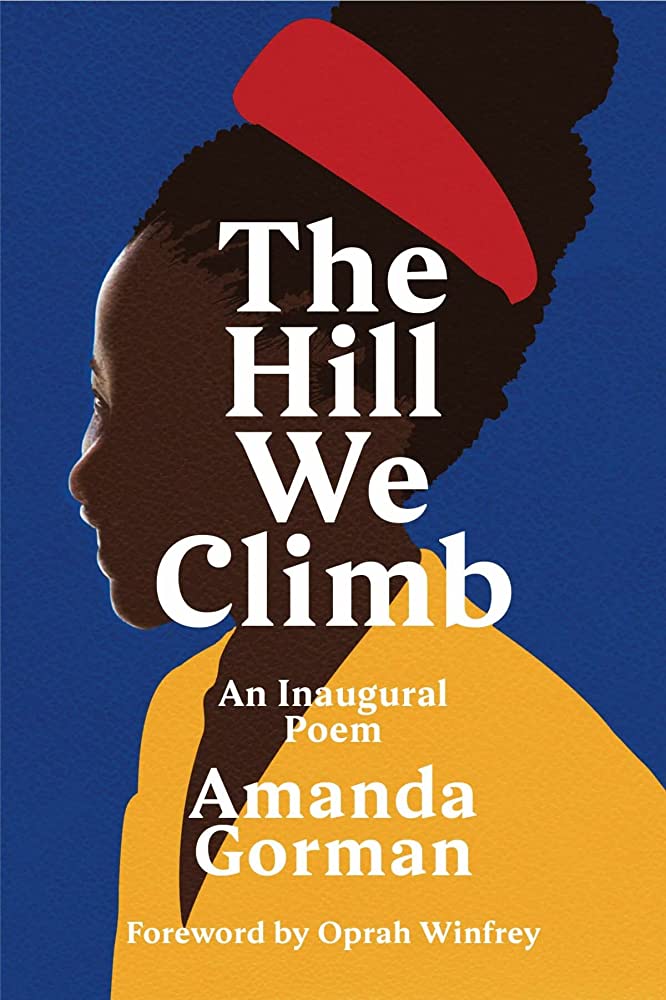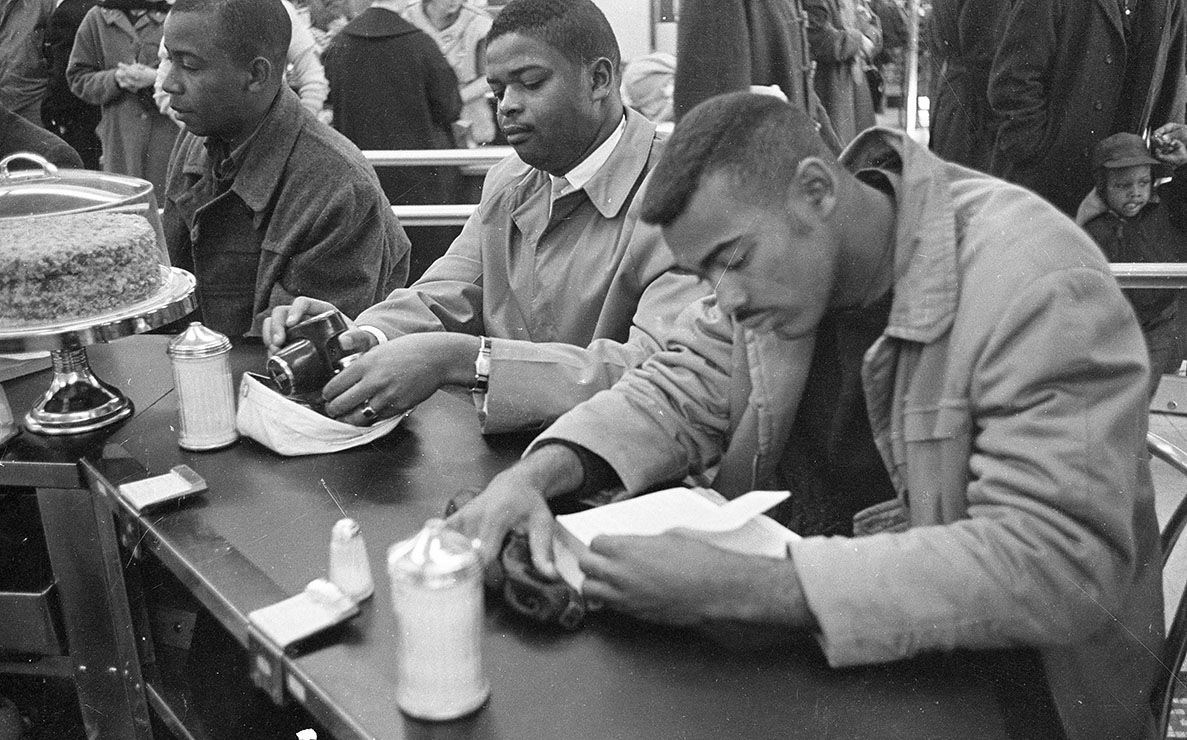This commentary appeared in the May 31 issue of the Irish Echo.
“Al Lawson felt the weight of his victory the night he was elected to Congress in 2016,” so began a report by Sam Levine last month in the Guardian.
“He was born in Midway, a small town that’s part of a stretch of land in northern Florida dotted with tobacco fields once home to plantations. A former basketball star, he was once reprimanded for drinking out of a whites-only water fountain. In some of his early campaigns for the state legislature, he ran into the Ku Klux Klan.”
“There was jubilation when he was elected.”
“Everywhere I would go, it was like a celebration,” Lawson told Levine in his office in downtown Tallahassee. “People saying: ‘Boy, I wish my daddy, my granddaddy – I really wish they could see this.’”
Levine continued, “In Congress, Lawson was a low-key member known for delivering federal money for things like new storm shelters to help his northern Florida communities. He was easily re-elected to the House in 2018 and 2020. But when he ran for re-election in 2022, he lost to a white Republican by nearly 20 points.”
“Lawson’s loss was nearly entirely attributable to Governor Ron DeSantis. The governor went out of his way to redraw the boundaries of Lawson’s district to ensure that a Republican could win it,” Levine wrote. “It was a brazen scheme to weaken the political power of Black voters and a striking example of how DeSantis has waged one of the most aggressive – and successful – efforts to curtail voting rights in Florida.
“In addition to reducing Black representation in Congress, the governor has tightened election rules, created a first-of-its-kind state agency, funded by more than $1m to prosecute election fraud and gutted one of the biggest expansions of modern-era voting rights.”
Lawson reported to Levine that leading Republican politicians, such as Senator Rick Scott and former Congressman Ted Yoho, told him privately they were surprised at DeSantis’s actions in the area of gerrymandering and voting rights.
Jasmine Burney-Clark, the founder of Equal Ground, a nonprofit that works to register voters, feels she knows what the governor is up to, saying in the Guardian piece, which was published on April 12, “Governor DeSantis has really targeted Black folks in his efforts to strip, restrict and suppress our vote in the state of Florida. That has been his number one mission.”
Levine interviewed Ben Frazier, an “activist who leads a nonprofit called the Northside Coalition of Jacksonville, [and who] emphasized the need for federal assistance as he drove around the city’s 33209 zip code – one of the most dangerous in the city – pointing out boarded-up businesses and houses.”
“It is unfortunate that [DeSantis] has chosen to operate like that because he’s not only a danger to Black people and people of color,” Frazier said. “He’s a danger to democracy.”
“It’s people of color that all of this redistricting is concerned about,” said Lee Harris, the senior pastor at Mt Olive Primitive Baptist church in Jacksonville. “If you notice, as long as they think they have control and the majority, they will push whatever law is beneficial to them.”
And we might add Cecile Scoon, president of the Florida chapter of the League of Women Voters, who told Levine, “It’s all connected to ‘we don’t care what you vote,’“ [and] ‘We don’t care what you say. We know better and we’re going to silence you.’”
Scoon added, “We are not in the land of the free any more in the state of Florida.”
So, this might provide some context to the NAACP’s response to DeSantis’s recent official announcement that he’s running for president in 2024. It issued a “travel advisory” for people who might be thinking of going to Florida for one reason or another.
Rich Lowry, editor-in-chief of the conservative National Review, pushed back strongly against this line in a column that delineated the ways in which Florida is a virtual paradise for everyone, though he did stop short of saying the state’s trains run on time.
He quoted directly from the NAACP statement, which said, “Before traveling to Florida, please understand that the state of Florida devalues and marginalizes the contributions of, and the challenges faced by African Americans and other communities of color.”
Said Lowry, “This is a shameful lie even by the standards of the NAACP.”
For his part, DeSantis called the NAACP statement a “political stunt”; which you could say it is, in that it might not be meant to be taken literally, until and unless somebody actually suggests a boycott of the state.
The National Review’s Lowry, in his column, explained helpfully that a “travel advisory” was something the State Department issued when “it says we shouldn’t travel to Burma ‘due to civil unrest and armed conflict’ and urges ‘increased caution due to wrongful detentions and areas with land mines and unexploded ordnance,’ most of us pay attention.”
Well, of course, Florida is not like the country now known as Myanmar, though the second part of Levine’s report somewhat contradicts DeSantis’s slogan for the state: “Freedom Lives Here.”
“One morning last August, Ronald Lee Miller, a Miami man in his late 50s, heard a knock on his door and answered, still in his underwear,” the Guardian journalist wrote, “When he opened the door, he saw that police had surrounded his home, some with their guns drawn and pointed at him. They put him in handcuffs and told him he was under arrest.
“A few hours later, DeSantis appeared at a press conference in a Fort Lauderdale courtroom, flanked by uniformed law enforcement officers, and announced Miller was among 19 people with prior criminal convictions being arrested for voter fraud and would ‘pay the price.’ They were charged with multiple counts of third-degree felonies, each punishable by up to five years in prison. The arrests were the first made under the office of election crimes and security, a new $1.2 million office DeSantis had created a few months earlier.”
So if a mere press statement by the NAACP is a “political stunt,” then how do we describe arresting 19 men in preparation for a press conference?
Levine wrote, “Many saw it as a thinly veiled effort to keep Black people from voting (14 of those arrested were Black). And records showed that many of those charged believed they were eligible to vote. Even though they all had prior convictions that resulted in a lifetime voting ban in Florida, none of them had been warned they couldn’t vote. All of them, including Miller, had received voter registration cards before casting a ballot.
“Ahead of the arrests, DeSantis and Florida Republicans had also made the rules for voting with a felony conviction in Florida extremely confusing.”
Levine pointed out that in 2018, “Florida voters overwhelmingly approved one of the largest expansions of the right to vote in the modern era. They approved a constitutional amendment that allowed people with most felony convictions to vote.”
DeSantis had since done everything to gum up the system with huge fines needed to get voting rights back (it seems it’s somewhat easier for felons to get their “gun rights” restored) and generally it has ground to a halt.
It turns out that those 19 arrested men weren’t covered under the voting rights expansion as they’d been convicted of the most serious crimes; but then as most people who follow politics know, election fraud is not an actual problem, and, even if it were, convicted murders and sex criminals would likely be the last people you’d see involved with it.
All of DeSantis’s action are about the pleasing the base in his national primary contest with Trump. Fox discovered as far back as 2012 — when the man who likes military personnel that don’t get caught (by the enemy) denounced President Obama’s reelection victory over Mitt Romney as rigged — that election denial was a big winner when it came to viewing figures.
Now conservative politicians have to cater to right-wingers who want the history of Black people and the struggle for Civil Rights rewritten in ways more palatable to them. Hence, as part of his highly aggressive culture wars, DeSantis has prevented high-school students access to a well-known college-level course in African American Studies. Nothing sinister here, says the conservative columnist Lowry: the governor’s position on the particular Advanced Placement program doesn’t mean “the state’s stance against ‘overly politicized material’ in the course makes it opposed to the teaching of African-American history as such.” As someone who was lucky enough to study college-level history, that struck me as about the weirdest line in Lowry’s column.
Inauguration poem restricted
Shortly after Lowry’s column was published we heard about something that spoke volumes about the atmosphere DeSantis has created in Florida’s education system. I’ll let the Washington Post’s Ron Charles tell the story here:
“Each week, I think I’ll never be able to find a stupider example of book banning than the previous week. But I’ve learned my lesson: Don’t underestimate Florida. On Tuesday, news broke that the Bob Graham Education Center in Miami Lakes had restricted access to Amanda Gorman’s ‘The Hill We Climb.’
“About 40 million Americans watched Gorman recite that poem at the presidential inauguration of Joe Biden. And in early 2021, when a bound edition of the poem was released with a foreword by Oprah Winfrey, it enjoyed the highest first-week sales of any poetry book ever published.
“But a parent in Miami Lakes could see right through the inspirational sheen of ‘The Hill We Climb.’ The complaint form, which mistakenly lists Oprah as the book’s author/publisher, indicates that administrators should ‘remove the challenged material from the total environment.’
“Asked ‘why do you object to this material?’ the Concerned Reader wrote: ‘Is not educational and have indirectly hate messages.
“First they came for the grammar books….,” Charles said.
“Our would-be censor goes on to explain that ‘the function of’ Gorman’s poem is to ‘cause confusion and indoctrinate students.’ And where the form asks, ‘Are you aware of professional reviews of this material?’ the parent proclaims with the confidence of every book-burner, ‘I don’t need it.’
“Naturally, faced with a single literary critique of such insight and perspicacity, administrators sprang into action and banned the book from grade school before any more children could be defiled by Gorman’s ‘hate messages.’
“As news of this lunacy spread, Miami-Dade school officials insisted that ‘The Hill We Climb’ had not been ‘banned’; it has simply been ‘shelved in the middle school section of the media center.’ In other words, it can still ride the bus; it just has to sit in the back.
“Responding on Instagram, Gorman wrote, ‘I am gutted.’ She went on to explain that she wrote ‘The Hill We Climb’ ‘so that all young people could see themselves in a historical moment.’ She urged Americans to donate to PEN America, which, along with other concerned parties, is suing another Florida school district over its removal of library books.”
Charles, who in the interests of full disclosure, revealed himself to be a member of PEN American, said, “The opening of ‘The Hill We Climb’ continues to sound distressingly relevant:
‘When day comes, we ask ourselves:
Where can we find light
In this never-ending shade?’”
The columnist concluded, “Alas, not in the Sunshine State.”







